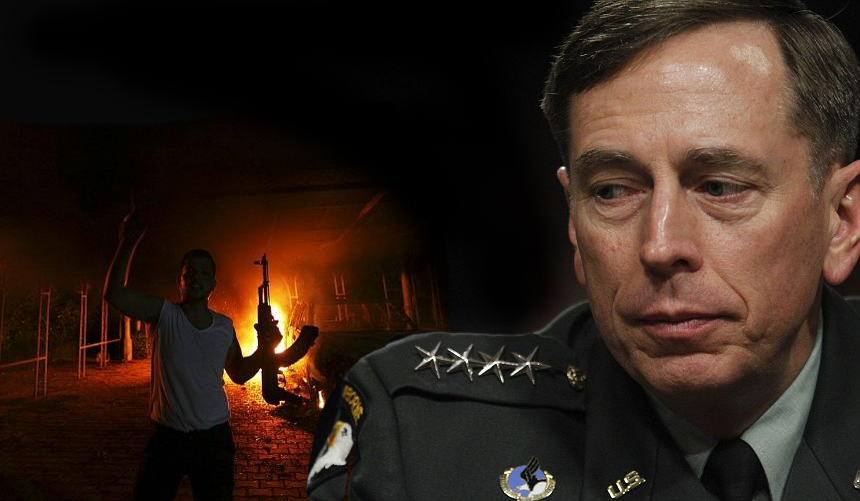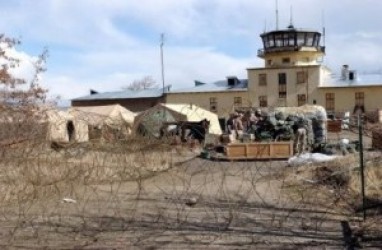Alex Constantine - November 29, 2010
 " ... The White House said in a blog post this month that ... the machines' X-ray emissions are perfectly safe. That claim has 'many misconceptions ... John Sedat, a UCSF professor of biochemistry and biophysics and member of the National Academy of Sciences, told CNET this month. Sedat and three other UCSF faculty members previously sent a letter (PDF) to White House science adviser John Holdren in April. Columbia University's David Brenner, professor of radiation biophysics, has raised similar concerns, saying the TSA's claims are not based on peer-reviewed independent studies published in scientific journals. ... "
" ... The White House said in a blog post this month that ... the machines' X-ray emissions are perfectly safe. That claim has 'many misconceptions ... John Sedat, a UCSF professor of biochemistry and biophysics and member of the National Academy of Sciences, told CNET this month. Sedat and three other UCSF faculty members previously sent a letter (PDF) to White House science adviser John Holdren in April. Columbia University's David Brenner, professor of radiation biophysics, has raised similar concerns, saying the TSA's claims are not based on peer-reviewed independent studies published in scientific journals. ... "
by Declan McCullagh
CNet | November 24, 2010
The Transportation Security Agency's new security procedures, including full-body scanners and what it obliquely calls "enhanced" pat downs, have cemented its reputation as one of the most reviled appendages of the federal government.
Q: What should I expect if I'm flying over the holidays?
Another twist: CNET is hearing that even airports like Washington Dulles and San Diego, which already rolled out the full-body scanners, are not using them consistently. TSA appears to be permitting its airport supervisors to switch back to metal detectors, especially during high-traffic times. TSA generally refuses to discuss specifics, saying its procedures are "designed to be unpredictable.
Here's a list as of last week, though it may be incomplete or the scanners may not be in use. Airports on the list include ones in Boston, Baltimore, Chicago, Cleveland, Dallas, Detroit, Houston, Kansas City, Las Vegas, Los Angeles, Miami, New York, Oakland, Pittsburgh, San Diego, San Francisco, Seattle, and Washington, D.C.
What are the new procedures?
What might cause me to get an "enhanced pat down?"
You can expect to receive this intrusive, police-style frisking in two circumstances: if you opt-out of the full body scanners that can produce a near-naked image, or if the operator of a scanner or metal detector detects anything anomalous. That means if you're trying to avoid the pat down by going through the body scanner, and you forgot to take even something innocuous out of your pockets that shows up on the monitors, you might get both.
How are the pat downs performed?
TSA says: "Pat downs are performed by same-gender officers and all passengers have the right to a private screening with a travel companion at any time." In addition, children who are 12 years old or younger "who require extra screening will receive a modified pat down," the agency says, without elaboration. "Each security officer is held to the highest level of professionalism," TSA chief John Pistole told our colleagues at CBS News this week. "And our goal is to treat each and every passenger with dignity and respect."
That's the theory and the official line. Reality sometimes falls short, as we've seen in cases where a Michigan cancer survivor was left covered with urine after an aggressive pat down, a screaming 3-year-old was being treated none too gently by an airport screener, and a blogger described how she was "sexually assaulted" after an unexpectedly intimate vaginal screening.
Do I have the right to record my checkpoint encounter with a video camera or a mobile phone?
The answer is, generally, yes. Not only do you likely have a First Amendment right to do so in the United States, but the TSA explicitly recognizes it. The agency says: "We don't prohibit public, passengers, or press from photographing, videotaping, or filming at screening locations."
Two potential obstacles remain. The first is that TSA screeners and local law enforcement may not be aware of the agency's own policy. This is what one blogger found out recently at Hartford's airport after being detained by a Connecticut state trooper for taking photographs. Two useful TSA numbers if you're being threatened with arrest for photography are (571) 227-2829 and (571) 227-1917.
The second obstacle is that a state law, a local law, or an airport ordinance may restrict either photography or audio recording. John "Don't Touch My Junk" Tyner was cited for violating an San Diego airport ordinance (PDF) saying "no person shall take still, motion, or sound motion pictures or voice recordings." Any such ordinance almost certainly violates the First Amendment, but you could still be cited and face significant legal hassles until you get before a judge--at least if the police want to demonstrate their authority to your detriment.
Are these new backscatter X-ray scanners safe?
It depends on who you ask. The White House said in a blog post this month that "the issue had been studied extensively for many years" by federal agencies that have concluded the machines' X-ray emissions are perfectly safe.
That claim has "many misconceptions, and we will write a careful answer pointing out their errors," John Sedat, a UCSF professor of biochemistry and biophysics and member of the National Academy of Sciences, told CNET this month. Sedat and three other UCSF faculty members previously sent a letter (PDF) to White House science adviser John Holdren in April. Columbia University's David Brenner, professor of radiation biophysics, has raised similar concerns, saying the TSA's claims are not based on peer-reviewed independent studies published in scientific journals.
If you are a skin cancer survivor or have any reason to believe you may be sensitive to the mutagenic effects of ionizing radiation, you may want to consult your physician before choosing to walk through one of the full body X-ray machines.
Wasn't this publicly discussed before the TSA regulations were made final?
Well, that's the problem. There was no public rule-making process and there are no public regulations.
EPIC's lawsuit against TSA says the agency failed to act on a request for a public regulatory process and that Homeland Security's chief privacy officer violated her legal obligation by not insisting the agency comply with privacy laws. TSA has not yet responded in court.
Can the X-ray body scanners record these whole body images?
The TSA says no. So does Rapiscan, the company that makes the machines, which said this week that "our systems do not allow for any saving or archiving."
But documents that the Electronic Privacy Information Center obtained through the Freedom of Information Act show the agency's procurement specifications require that the Rapiscan machines be capable of storing the images on USB drives. A 70-page TSA document (PDF), classified as "sensitive security information," says that in a test mode the scanner must "allow exporting of image data in real time" and provide a mechanism for "high-speed transfer of image data" over a computer network.
Are the X-ray body scanners effective?
Pistole told CNN this week that he believes the scanners would have nabbed Abdulmutallab, the unsuccessful Christmas day bomber accused of hiding PETN explosive in his underwear. "Well, we believe it would," Pistole said. "And that gives us the best opportunity that would detect that. Without the enhanced pat down, it obviously would not be found."
But a member of Al Qaeda, as CBS News reported, already has inserted about one pound of high explosive (plus a detonator) in his rectum and managed to smuggle it past airport security in a failed assassination attempt. That kind of threat wouldn't be detected by the TSA's new procedures.
"I'm telling you, the next thing is body cavity," Rep. John Mica, a Florida Republican who's set to head a key transportation panel next year, said on Fox Business last week. "And terrorists aren't above using those means. And the equipment they've got now will not detect that kind of intrusion or that kind of a threat." (That's already leading to jokes about anal cavity searches, with former Republican U.S. Senator Rick Santorum predicting that for the TSA, "that's next.")
Can TSA screeners prevent me from leaving the airport if I decline the scan or frisking?
The TSA likes to refer to its screeners as "officers." They're not.
As the PapersPlease.org advocacy site points out:
"Despite wearing police-type uniforms and calling themselves 'officers,' they have no police powers and no immunity from any state or local laws. At some airports, notably San Francisco (SFO) and Kansas City (MCI), they aren't government employees at all, but rent-a-cops employed by a private contractor. They cannot legally arrest or detain you (except as a citizen's arrest, the same way you can arrest them if they commit assault or battery). All they can do is call the local police."
In fact, a San Francisco Bay Area district attorney has threatened TSA screeners at San Francisco International Airport with prosecution on felony battery charges if they touch a passenger inappropriately.
So the local cops, who are sworn law enforcement officers, can legally prevent me from leaving if I'm in line to be frisked? And are these new searches constitutional?
49 USC 44902, says that airlines may not transport passengers who do not consent to searches.
A series of federal appeals court cases after September 11, 2001, has generally said that constitutional rights are sharply limited in the secure areas of airports. More specifically, the 9th Circuit ruled in 2002 against a man who walked through the metal detector and whose bag passed through the X-ray machine without incident. He asked to leave, however, rather than have his bag randomly searched; the court ruled that he consented to that search by beginning the screening process.
Part of the problem in coming up with a straight answer is that it involves reasoning by analogy: if courts have treated metal detectors one way, will they view full-body scanners and enhanced pat downs as equally intrusive or conclude they're more privacy-invading? That's still an open question.
What training do TSA screeners receive?
They're not subject to the same background searches and training as a sworn law enforcement officer. "New screeners are currently required to complete less than two weeks of classroom training," Time.com says, plus an extra week or two of on-the-job training. New hires can expect to earn between $24,000 and $37,000 per year.
Where can I file a complaint against a TSA screener?
Declan McCullagh
E-mail Declan McCullagh
Declan McCullagh is the chief political correspondent for CNET. Declan previously was a reporter for Time and the Washington bureau chief for Wired and wrote the Taking Liberties section and Other People's Money column for CBS News' Web site.
http://news.cnet.com/8301-31921_3-20023773-281.html#ixzz16gdxQIsS








